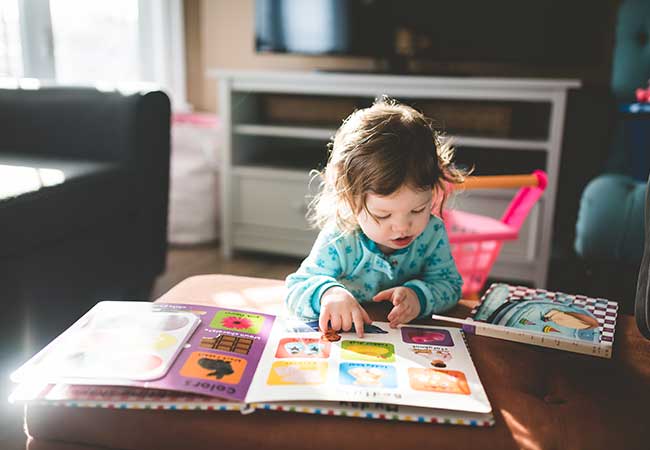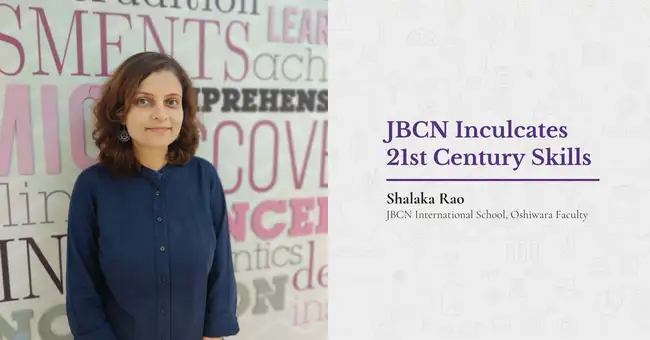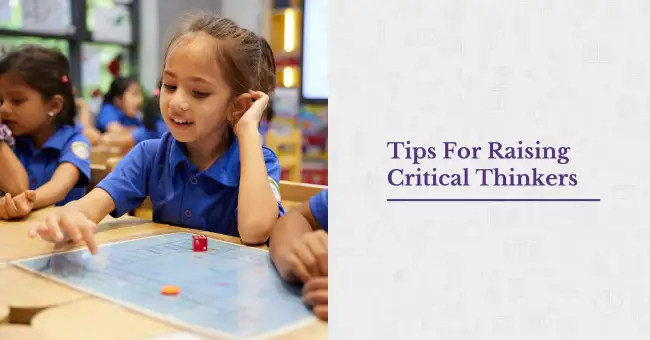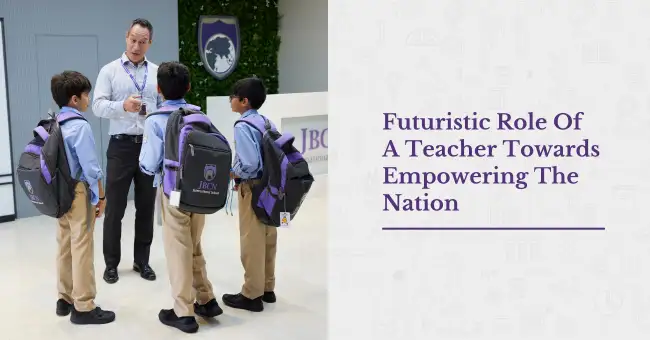
Books are a handy resource packed with information, insights into a happy life, life lessons, love, prayer, fear and lots of advantageous instruction. Books open doors to a world of ingenuity, creativity, and resourcefulness. Stories are an integral part of our lives, they talk about our history, our mythology, our beliefs, our aspirations, possibilities of our future, and the list is endless. Books can become a person’s best friend, loyal supporter and key counsel for life.
Reading in the early years has numerous benefits and is the key to a child’s mental and emotional growth. One key benefit of inculcating the habit of reading is the development of critical thinking skills. Reading books increases your knowledge, enhances your inventiveness, builds your vocabulary and generally makes you smarter.
Neurological
In the early years, the importance of a child learns faster than at any time of their life. As parents interact with their child by talking, singing and reading, the brain cells of the child strengthen by making new connections. And as a child learns to read, it has a profound influence on the development of their cognitive skills.Educational
 Importance of Reading in early years is that it supports in child’s academic success and imparts a lifelong love for learning. Strong oral language skills lead to greater general knowledge and command over a language. They may find it easier to learn and be fluent in multiple languages. They have longer attention spans and better focus and concentration. Owing to the sequential chronicle pattern of most books — a beginning, middle, and end — reading encourages the brain to think in similar sequential chronicle pattern, and thus spend more time on building a story rather than rushing through each detail.
Importance of Reading in early years is that it supports in child’s academic success and imparts a lifelong love for learning. Strong oral language skills lead to greater general knowledge and command over a language. They may find it easier to learn and be fluent in multiple languages. They have longer attention spans and better focus and concentration. Owing to the sequential chronicle pattern of most books — a beginning, middle, and end — reading encourages the brain to think in similar sequential chronicle pattern, and thus spend more time on building a story rather than rushing through each detail.Children who read become proficient in comprehending in what they are reading and are proved to be better listeners as well. It’s interesting to know that early readers not only become lifelong readers but also lifelong leaders as well.
Physiological
A child who learns to read at an early age shows individuality and poise. Reading promotes maturity and discipline sparks curiosity about people, places and things around them. Thus, ignites child’s creativity and imagination. The child is able to channelize his/her physical energy when he/she chooses to sit and read. Reading has repeatedly been linked to creativity.Linguistic
The sooner the children learns to read they are exposed to a variety of books, it helps them in gaining knowledge, they have an enhanced vocabulary, better writing and spelling skills and are more articulate conversationalists and effective communicators.The most important step to prepare a child become a reader is to Read Aloud together.
Reading books aloud can help children develop literacy skills and love for reading for life.
Reading aloud is interactive, sensory and exciting for all. Sharing a book with a child is fun – it’s a time of closeness, laughter and talking together. It helps build a strong and loving relationship with the child.
It is an easy way to interact and connect with them, they learn new words and language skills.
Books with illustrations and age-appropriate text holds a child’s attention. Using funny voices and different facial expressions makes reading time enjoyable and fun. Voices could be as loud as thunder and as quiet as mouse.
Still Not Convinced… Read On For Life-Long Benefits Of Reading
 Reading has proven to improve memory, enhance empathic skills and even keep away brain degenerative disorders. Reading has been linked to longer life-spans as it is a stress-reducing activity. Associating with the characters we read about, identifying with their situations and emotional condition. When we read, neurons in the brain come alive and create a sensation of not just reading about the circumstance of the character in the book, but being able to actually experience the sensations portrayed therein.
Reading has proven to improve memory, enhance empathic skills and even keep away brain degenerative disorders. Reading has been linked to longer life-spans as it is a stress-reducing activity. Associating with the characters we read about, identifying with their situations and emotional condition. When we read, neurons in the brain come alive and create a sensation of not just reading about the circumstance of the character in the book, but being able to actually experience the sensations portrayed therein.Studies have found that, after reading fiction, people have a greater “acceptance” mode and tend to practice gratitude. The ambiguous nature of fiction encourages people to accept the indefinite nature of life and ability to live with more positive and healthy mental states of being. Thinking about and accepting ambiguity is thought to be a key to creativity as when one has the ability to view situations from multiple perspectives, it is make it easier to view new possibilities.
Start Young
Children read and understand simple sentences. They use phonic sounds to decode words and read aloud accurately. They demonstrate their comprehension skill and understanding while talking to others about what they have read.To start reading a child needs to have lots of skills – rhyming, matching, and awareness of phonic sounds as well as language development skills such as listening, attention, alliteration and sound discrimination.
As an infant they put things together while they look at pictures and listen to voices. We need to guide them with the correct word for the right picture, thus helping them with development of their language skills. They learn the sound of language even before learning to read the printed letters and words. The rhythm and melody of words become a part of their life. Rhyming help children break down words and hear the sounds. So, singing and rhyme time is important in the preparation for reading and writing.
Make Reading A Daily Habit
Although parents lead a hectic life, we should make a point to read to your child at least once a day at a fixed time. We should set aside time, find a quiet place without distractions. It should be as regular as brushing your teeth, eating a meal or going to bed.Sharing books that the child has chosen shows we care about what they think and their opinion matters, they are more likely to be engaged.
Parents must encourage the child to hold the book or turn the pages, while they point to the pictures, relate them to the illustrations, describe the characters or situations and talk about the possibilities of what could happen next.
Encourage the child to talk about the book. Talking about characters and dilemmas help children understand relationships and is an excellent way to get to know each other or discuss difficult issues.
Always remember to give your little ones time to respond. Children take a longer time to comprehend and articulate their thoughts. Asking key questions will help them phrase their answers better and more to the point. Discussing possibilities of the future of the story being read helps them think ahead and develop foresight. Talking about how a character must be feeling or how the book makes them feel improves their recognition of emotions and they learn to adopt empathy and kindness as a part of their personality.
It is equally important to make reading an enjoyable activity by adding an element of fun. Making funny voices and introducing sounds while reading a story add to their imagination and make it appear real to them. Creating stories with children, asking them to predict what’s going to happen next and helping them to make up their own ending to familiar stories encourages to think more critically and become more creative.
Reading At School
 To encourage reading at schools, Teachers and Librarians have Story time, which involves children sitting together to read a story or talk about a book. Group reading or read aloud help boost confidence in children and encourages interest and interaction. Importance of reading at school is that children learn faster with other children.
To encourage reading at schools, Teachers and Librarians have Story time, which involves children sitting together to read a story or talk about a book. Group reading or read aloud help boost confidence in children and encourages interest and interaction. Importance of reading at school is that children learn faster with other children.A fun task can be to read and act out the book together. Learners Imaginations would run wild thus role play will make reading fun.
Having a well-equipped library and reading corner in the class room will boost the culture of reading. A comfortable cozy place in the classroom that invites the children to sit and read books and listen attentively to the story time develops a positive relationship between reading and books.
A variety of picture and phonic books sent home from the library encourages the reading habit.
Repetition is the key when moving through Pre- school Reading Program. Continuous reinforcement of already learnt sound and letters through games and activities help children to progress steadily.
Early reading skills aren’t just about getting children ready for school and education but also it helps them to express themselves, make friends and enhances in children certain key skills for life. We want them to get opportunities to enjoy books and experience a wide range of language through rhymes, poetry, and stories.
Written by - Sanjukta Sikder
Learning Resource Centre, JBCN International School, Oshiwara











